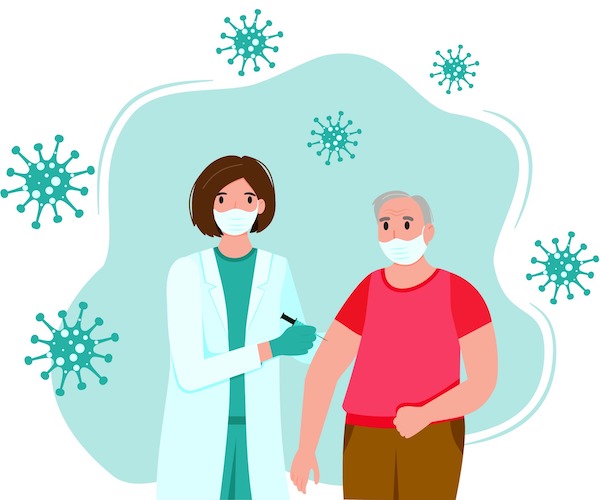
Los beneficios de la atención preventiva y los exámenes médicos periódicos
Destaca la importancia de la atención preventiva y los exámenes médicos periódicos para proteger la salud a largo plazo. El artículo aborda los exámenes clave que favorecen la detección temprana, ayudan a controlar las enfermedades crónicas y reducen el riesgo de padecer enfermedades graves. También hace hincapié en cómo las vacunas, los chequeos rutinarios y las recomendaciones sobre el estilo de vida mejoran el bienestar general. Al adoptar una actitud proactiva con respecto a la atención preventiva, los pacientes obtienen una visión más clara de su salud y un mayor apoyo para mantener un futuro más saludable.
El proceso natural de envejecimiento conlleva un mayor riesgo de desarrollar ciertas enfermedades crónicas, como cardiopatías, diabetes y cánceres. Aunque tradicionalmente las personas solo acudían al médico cuando se sentían enfermas, cada vez es más importante que los pacientes reciban atención médica rutinaria para mantener su salud.
La atención preventiva incluye servicios para prevenir, diagnosticar y tratar afecciones médicas antes de que se conviertan en un problema grave. Esto puede reducir los costos generales de atención médica y conducir a una vida más saludable y longeva. A pesar de los numerosos beneficios de la atención preventiva, muchos estadounidenses no se someten a los exámenes y servicios recomendados. Comprender la importancia de los chequeos periódicos, las vacunas y la detección temprana puede marcar una diferencia significativa en los resultados de salud. Para obtener información más detallada sobre cómo gestionar eficazmente sus necesidades de atención médica, puede explorar nuestro recurso en atención primaria integral y sus beneficios. Al mantenerse informados y ser proactivos, las personas pueden gestionar mejor su trayectoria sanitaria y aprovechar al máximo los servicios preventivos a su disposición.
En este artículo, describiremos qué es la atención preventiva, los diferentes exámenes y servicios que incluye, y otras consideraciones importantes que pueden mantenerte sano a ti y a tu familia.
¿Qué es la atención preventiva?
Los servicios de atención médica preventiva describen una amplia gama de medidas que los pacientes y los proveedores pueden tomar para ayudar a prevenir y controlar las enfermedades crónicas. Estas medidas pueden incluir pruebas de detección y análisis de laboratorio, medicina preventiva y vacunas, así como cambios en los hábitos de los pacientes y modificaciones en la dieta.
La atención preventiva puede iniciarse en su visita anual de bienestar de Medicare o en su chequeo preventivo con su médico. médico de cabecera. La atención prestada suele encuadrarse en uno de estos tres tipos de atención preventiva.
- Prevención primaria. Servicios para prevenir la aparición de enfermedades, incluyendo la pérdida de peso, las vacunas y el abandono del tabaquismo.
- Prevención secundaria. Servicios para diagnosticar un problema de salud de manera temprana y mejorar las opciones de tratamiento. Estos pueden incluir mamografías y colonoscopias.
- Prevención terciaria. Servicios para ayudar a controlar las afecciones de salud actuales con el fin de prevenir complicaciones y mejorar los resultados de salud.
Independientemente del tipo de atención preventiva, su proveedor de atención primaria es esencial para ayudarle a organizar, educar y revisar todas sus necesidades de atención médica preventiva.
Atención preventiva para adultos
Los servicios de atención médica preventiva para adultos incluyen exámenes de detección de enfermedades crónicas; vacunas contra la gripe, la COVID-19 y la neumonía; y medidas de asesoramiento para promover estilos de vida saludables. Dependiendo de la edad y los antecedentes familiares, se recomendarán ciertas pruebas de detección y medidas de asesoramiento. atención primaria médico. Entre ellos se pueden incluir:
- Se recomienda realizar exámenes de detección de cáncer, como mamografías, pruebas de Papanicolaou, exámenes de próstata y colonoscopias, para identificar los cánceres en una etapa temprana de su desarrollo.
- Pruebas de laboratorio para detectar afecciones como diabetes, colesterol alto y deficiencias vitamínicas.
- Cuestionarios y asesoramiento para identificar a los pacientes que necesitan servicios adicionales para un mejor manejo de diversas afecciones de salud.
- Las vacunas se utilizan para prevenir el desarrollo de enfermedades o minimizar las complicaciones una vez contraídas.
Atención preventiva para niños
La atención preventiva se utiliza en los niños para identificar afecciones que pueden beneficiarse de un tratamiento o intervención tempranos, así como para prevenir enfermedades graves. Durante la infancia, se programan revisiones médicas a intervalos adecuados y se promueve un desarrollo infantil saludable.
Las medidas de detección y prevención más comunes que se usan en los niños incluyen:
- Vacunas. La poliomielitis, el sarampión, las paperas y la rubéola son solo algunas de las enfermedades graves que se han reducido drásticamente gracias a los programas de vacunación modernos.
- Exámenes de bienestar. Las tablas de crecimiento y los hitos del desarrollo se utilizan para identificar a los niños que padecen afecciones que pueden afectar a su desarrollo normal.
- Pruebas de detección. Se realizan evaluaciones para identificar a los niños que padecen depresión, autismo y otros trastornos del desarrollo.
- Análisis de sangre. Las pruebas de detección de intoxicación por plomo, deficiencias vitamínicas y anemias pueden garantizar el desarrollo adecuado del niño.
Beneficios para la salud de la atención preventiva
Programar un chequeo preventivo puede ser una de las medidas más beneficiosas para mejorar su salud. Ya sea un examen de bienestar de Medicare o una visita de telesalud, recibir atención preventiva puede proporcionar los siguientes beneficios.
- Detección temprana. Las pruebas de detección recomendadas pueden ayudar a identificar problemas y afecciones médicas de manera temprana, lo que se traduce en un tratamiento más eficaz y menos costoso para que puedas vivir más feliz y saludable.
- Reducir los riesgos de enfermedad. Las pruebas periódicas pueden ayudarle a tomar decisiones saludables y a hacerse cargo de su salud. Identificar los problemas de manera temprana puede ayudar a prevenir el desarrollo de ciertas enfermedades.
- Mayor longevidad. Las pruebas de detección permiten diagnosticar las enfermedades en una fase temprana y conducen a un estilo de vida más largo y saludable.
- Reduce los costos de atención médica.. Los servicios de atención médica preventiva pueden reducir la necesidad de hospitalizaciones y tratamientos costosos, lo que supone un ahorro significativo en materia de salud.
- Más tiempo para hacer lo que te gusta. Reducir el efecto de las enfermedades crónicas permite a los pacientes pasar menos tiempo en las consultas médicas y más tiempo disfrutando de la vida.
¿El seguro cubre la atención preventiva?
La mayoría de los planes de salud deben cubrir la atención preventiva sin necesidad de pagar un copago o deducible. Si bien ciertas pruebas de detección tienen requisitos de edad (por ejemplo, las mamografías a partir de los 40 años), el examen físico o de bienestar anual de Medicare está disponible para todos los pacientes elegibles.
Durante una visita anual de bienestar de Medicare, su proveedor puede ayudarle a determinar todas las pruebas de detección necesarias cada año y proporcionarle las referencias para ayudarle a concertar esas citas. Esto puede garantizar que aproveche al máximo los beneficios de su seguro médico y obtenga la mejor atención posible.
Comprender la diferencia entre una prueba preventiva y una prueba diagnóstica
Una prueba preventiva se solicita antes de que aparezcan los síntomas de la enfermedad y se utiliza para detectarla. Esto incluiría una prueba de glucosa en sangre en ayunas en su examen anual para detectar diabetes.
Sin embargo, una prueba diagnóstica se realiza para diagnosticar una afección médica o para monitorear una enfermedad ya diagnosticada. Utilizando el mismo ejemplo, esto sería cuando su médico le pide una prueba de glucosa en sangre en ayunas para determinar si un nuevo medicamento está ayudando a controlar su diabetes (es decir, la diabetes ya ha sido diagnosticada).
¿Por qué es importante esto? Las compañías de seguros suelen pagar las pruebas preventivas sin exigir copago ni deducible. Sin embargo, en el caso de las pruebas diagnósticas, según su plan de seguro específico, es posible que se aplique un copago o deducible al servicio.
En resumen
La atención preventiva es una de las medidas más influyentes que se pueden tomar para cuidar la salud y es uno de los principales objetivos de los profesionales de Complete Health. Estos servicios se utilizan para identificar las áreas que necesitan mejorar y detectar enfermedades cuando son más fáciles de tratar. Esto permite a nuestros pacientes llevar una vida más sana y longeva, y reducir su gasto sanitario general.
Más artículos del blog
Manténgase informado con los últimos consejos de salud y conocimientos médicos de nuestros profesionales sanitarios.


